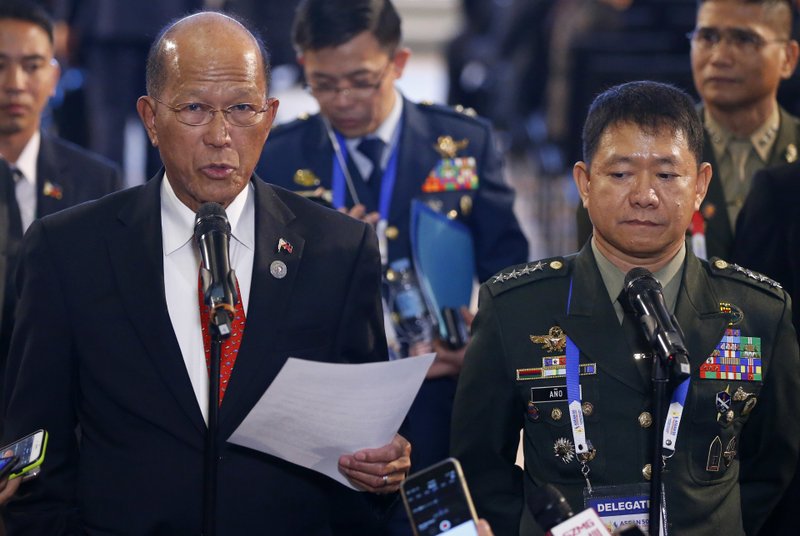
Photo: AP
The Philippine government declared the end Monday to the militant siege of a southern city that lasted five months, left more than 1,100 people dead and sparked fears of the Islamic State group gaining a foothold in Southeast Asia.
Speaking at an annual meeting of the region’s defense ministers, Defense Secretary Delfin Lorenzana told reporters that combat operations in Marawi were ending after troops recovered 42 bodies of the last group of militants.
“Those are the last group of stragglers of Mautes and they were caught in one building, and they were finished,” he said. “There are no more militants inside Marawi City.”
The siege had sparked fears the Islamic State group would influence, fund and strengthen local militant groups as it was losing ground in Syria and Iraq. The defeat of the IS-linked uprising and the deaths of its leaders have been a relief to the region.
Still, the length of the siege and the difficulty the military had in stamping it out has raised questions about the preparedness of the Philippines armed forces at a time when President Rodrigo Duterte has been suggesting his country could ditch its longtime ally the United States.
The timing of the uprising was also detrimental, coming as the Philippines plays host to the annual summit meetings of the Association of Southeast Asian Nations, along with the 10-nation bloc’s Asian and Western counterparts, including the United States and Australia. The two governments deployed surveillance aircraft and drones to help Filipino troops rout the Marawi militants.
Lorenzana focused on the final success in his comments Monday.
“The Philippine security forces, aided by its government and the massive support of the Filipino people, have nipped the budding infrastructure and defeated terrorism in the Philippines,” Lorenzana said.
He said the achievement shows how regional cooperation can contain the spread of terrorism. “In crushing thus far the most serious attempt to export violent extremism and radicalism in the Philippines and the region, we have contributed to preventing its spread in Asia.”
Last week, troops killed the final two surviving leaders of the siege, including Isnilon Hapilon, who is listed among the FBI’s most-wanted terror suspects in the world, and Omarkhayam Maute. Following their deaths, Duterte traveled near the main scene of battle and declared Marawi had been essentially liberated.
DNA tests done in the United States requested by the Philippine military have confirmed the death of Hapilon, according to the U.S. Embassy in Manila. Washington has offered a bounty of up to $5 million for Hapilon, who had been blamed for kidnappings for ransom of American nationals and other terrorist attacks.
Among the foreign militants believed to be with the remaining gunmen in Marawi were Malaysian militant Amin Baco and an Indonesian known only as Qayyim. Both have plotted attacks and provided combat training to local militants for years but have eluded capture in the south.
Lorenzana said Monday the identities of the final 42 bodies had not been determined yet as some were beyond recognition.


